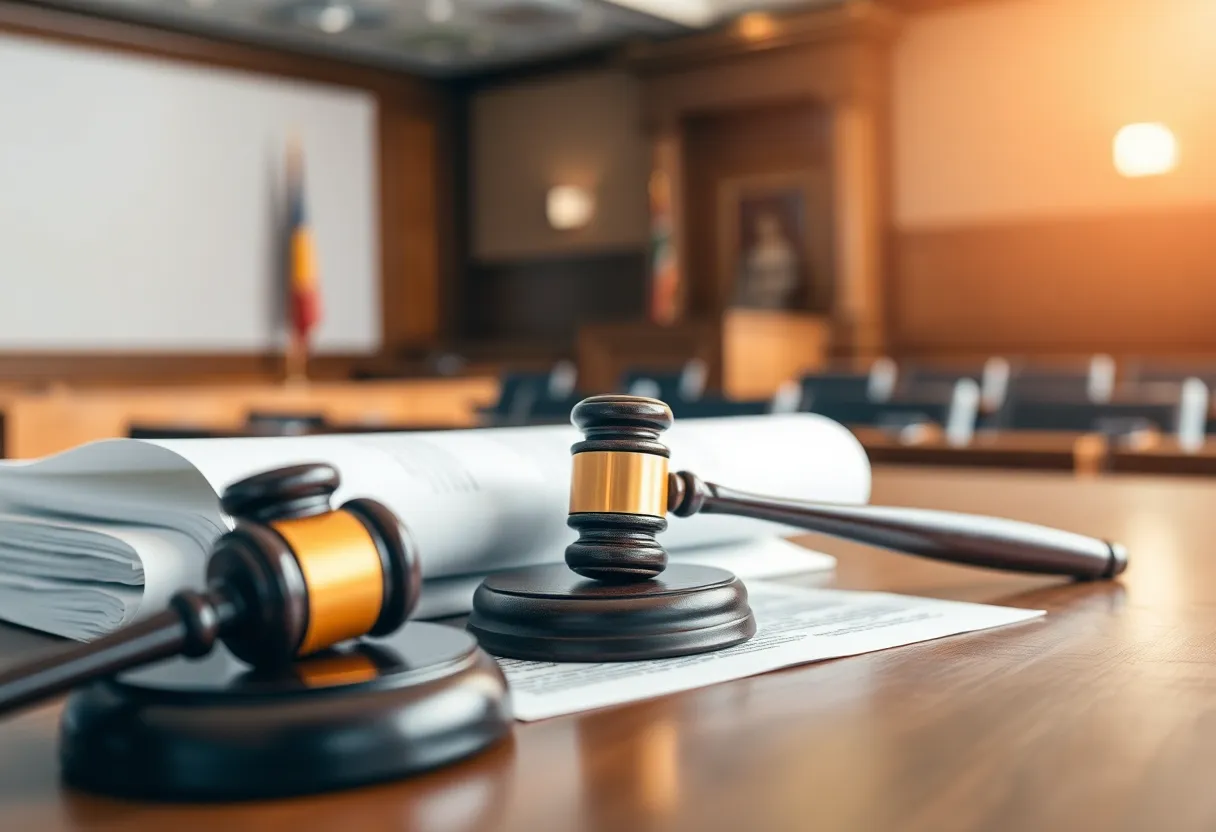News Summary
Ghislaine Maxwell’s attorney has filed an appeal with the U.S. Supreme Court to overturn her 2021 conviction related to the Jeffrey Epstein case. The appeal focuses on a disputed non-prosecution agreement that could impact her legal standing. As Maxwell serves a 20-year sentence for recruiting underage girls, her legal team argues that the agreement made between Epstein and federal prosecutors should protect her from prosecution as well. The outcome of this appeal could have significant implications on accountability in similar legal cases.
Ghislaine Maxwell Appeals to Supreme Court Over Conviction
The drama surrounding Ghislaine Maxwell continues as her attorney has taken a bold step by filing a request with the U.S. Supreme Court to overturn her 2021 conviction. Maxwell, who was found guilty of recruiting and grooming teenage girls for the sexual abuse orchestrated by her former associate Jeffrey Epstein, is eager to contest the legal rulings that saw her sentenced to 20 years in prison.
On Monday, Maxwell’s attorney, David Oscar Markus, submitted the appeal, once again drawing attention to a non-prosecution agreement (NPA) made between Epstein and federal prosecutors in Florida. Markus argues that this agreement should also apply to Maxwell, thereby preventing her prosecution in any part of the United States, not just Florida.
What’s the Legal Controversy?
The core of the situation revolves around differing interpretations of the NPA. Markus emphasizes there’s ongoing debate among federal courts regarding whether such an agreement is binding throughout the country or limited to Florida, where it was initially drafted. He maintains that the U.S. government should honor its promises and view the agreement broadly, instead of restricting it by location.
On the flip side, federal prosecutors contend that the NPA only pertains to the southern district of Florida, making Maxwell’s New York prosecution valid. Judge Alison Nathan, who oversaw Maxwell’s trial, has sided with the government’s interpretation, asserting that no specific assurances were made to Maxwell regarding non-prosecution outside of Florida.
Unraveling the Timeline
Maxwell’s legal troubles stem from actions that took place between 1994 and 1997, which predates the timeframe covered by Epstein’s NPA of 2001 to 2007. This is an essential point that the prosecution underscores to reinforce their stance regarding the legality of Maxwell’s trial.
Markus, in his appeal, maintains that Maxwell is being unfairly scapegoated for Epstein’s unlawful actions. He also calls on the Supreme Court to lend an ear to Maxwell’s situation, even suggesting that former President Donald Trump could intervene on her behalf.
The Road Ahead
As it stands, the Supreme Court has not yet acted on the appeal. Since the court is currently on summer recess, a decision could take some time—potentially months. Many are curious to see if the court will decide to hear the case when it reconvenes in the fall.
The Justice Department has clearly indicated that Maxwell was not named in the original agreement, thus, they argue, she does not qualify for its protections. Markus was quick to counter these claims, suggesting that the government’s interpretation of the NPA borders on being nonsensical.
Key Takeaways
- Maxwell is serving a 20-year sentence for her involvement in Epstein’s sex trafficking operation.
- The appeal hinges on the interpretation of Epstein’s non-prosecution agreement.
- There is significant legal disagreement over whether the NPA should extend beyond Florida.
Many are observing this crucial legal battle closely, as the outcomes could have substantial implications not just for Maxwell, but for the broader discussion around accountability in similar cases.
Frequently Asked Questions about Ghislaine Maxwell’s Appeal
What is Ghislaine Maxwell appealing?
Maxwell is appealing her 2021 conviction for recruiting teenage girls for Jeffrey Epstein, focusing on a non-prosecution agreement made by Epstein with federal prosecutors in Florida.
What is a non-prosecution agreement (NPA)?
A non-prosecution agreement is a legal document wherein a prosecutor agrees not to charge a defendant with a crime if certain conditions are met.
How could the appeal impact Maxwell’s sentence?
If the Supreme Court decides to hear Maxwell’s appeal and rule in her favor, it could potentially overturn her conviction, leading to her release or a new trial.
When is a decision expected from the Supreme Court?
The Supreme Court’s decision regarding whether to hear Maxwell’s case could come in the fall, as they are currently on summer recess.
Deeper Dive: News & Info About This Topic

Author: STAFF HERE PROVIDENCE WRITER
The PROVIDENCE STAFF WRITER represents the experienced team at HEREProvidence.com, your go-to source for actionable local news and information in Providence, Providence County, and beyond. Specializing in "news you can use," we cover essential topics like product reviews for personal and business needs, local business directories, politics, real estate trends, neighborhood insights, and state news affecting the area—with deep expertise drawn from years of dedicated reporting and strong community input, including local press releases and business updates. We deliver top reporting on high-value events such as WaterFire, Rhode Island International Film Festival, and Rhode Island Comic Con. Our coverage extends to key organizations like the Greater Providence Chamber of Commerce and Providence Warwick Convention & Visitors Bureau, plus leading businesses in finance and manufacturing that power the local economy such as Citizens Financial Group and Textron. As part of the broader HERE network, we provide comprehensive, credible insights into Rhode Island's dynamic landscape.





